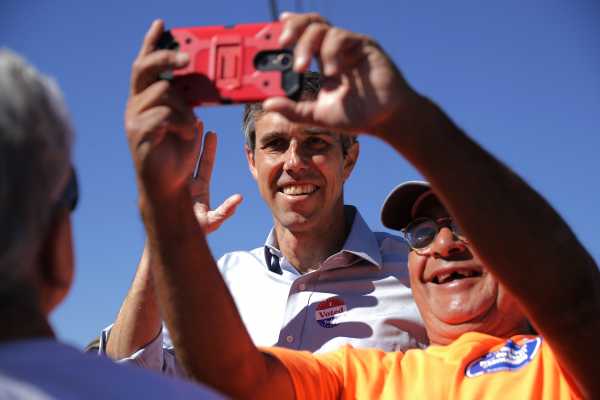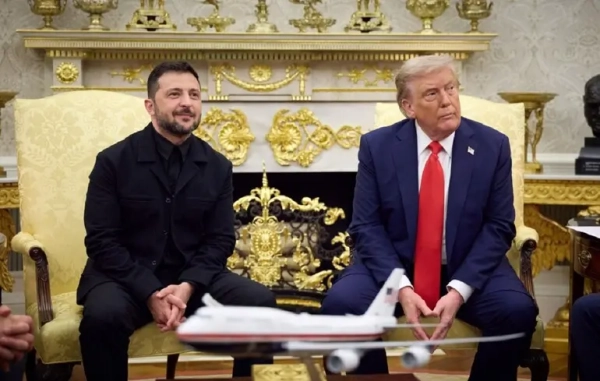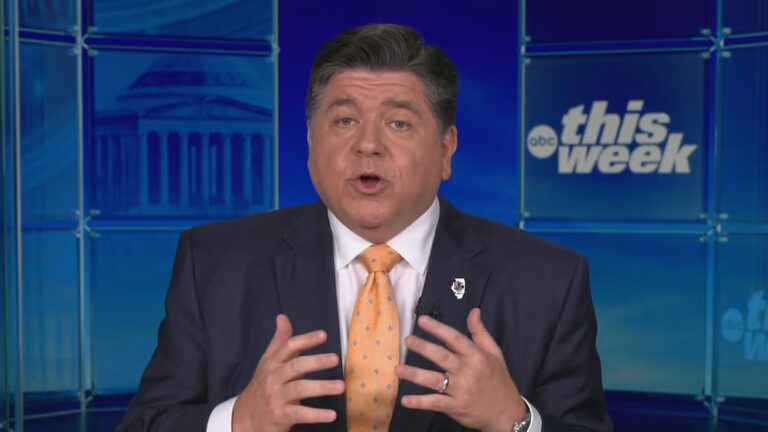
Beto O’Rourke, the presidential candidate, once belonged to an obscure but influential band of computer hackers who helped set the scene for Anonymous and the high-profile hacktivists of the modern digital era.
As a teenager in the 1980s, O’Rourke joined the group called the Cult of the Dead Cow (CDC), named for a Texas cattle slaughterhouse. He spent a few years affiliated with CDC, posting on primitive internet message sites and becoming casually acquainted with some of the most well-known hacker activists of that early generation. Joseph Menn, a hacker historian who wrote an upcoming book about Cult of the Dead Cow, revealed O’Rourke’s membership in the group in Reuters on Friday.
The 46-year-old O’Rourke hasn’t actively participated in CDC in years, falling off after he left for Columbia University at age 18. Its members kept his secret for a long time, though, only agreeing to talk publicly about the history after O’Rourke himself spoke with Menn for his book.
The former Texas Congress member already enjoys a certain cool-kid reputation. He’s the skateboarding punk rock bassist who can now claim associations with an influential cadre of early digital activists, who have taken on Microsoft, Chinese censors, and the Church of Scientology.
He doesn’t appear to have been deeply involved or to have participated in any of the group’s better-known stunts. But there is something fitting about O’Rourke’s membership in a group that was known for its communications savvy — “a flair for spectacle” as one expert put it — more than its technical proficiency.
“CDC wasn’t pumping out tech. It was really about trying to get the word out there that hackers could do good in the world,” Gabriella Coleman, a McGill University professor who has written about hacker anthropology and culture, told me. “CDC had cultural cache. They were like the punk rock band of the hacker world.”
The Cult of the Dead Cow coined the term “hacktivism” for politically motivated digital activism. Its biggest stunt targeted Microsoft at the height of its powers in the 1990s in a bid to force the software giant to fix security holes in its programs. CDC ethos could be found in Anonymous, the first hacktivist group to really break out and influence real-world politics.
Now they’ve given us Beto, the first hacker candidate.
The Cult of the Dead Cow, explained
In those days, when the Cult of the Dead Cow was founded in the 1980s, there were a few different kinds of hackers: the truly nerdy programmers with all the technical wizardry, the security professionals who wanted a private and safe internet, and the early hacktivists, who saw the internet as a tool for change (and had a real mischievous streak). CDC was part of the latter caste: While some of their members did have strong tech chops, they were better known for their ability to draw media attention with a penchant for the ridiculous.
They came up with a word for it: hacktivism. They declared war on the Church of Scientology in 1995, furious about the church’s attempts to censor online content. They went after Chinese censors for the same reason. In 1998, they pulled off their most audacious move: releasing a program called Back Orifice that allowed remote users to control somebody else’s computer through Microsoft Word. The goal was to force the software giant to improve its products’ security — an altruistic aim, though not everybody agreed with CDC’s methods.
“Some of the people totally think it was reckless,” Coleman said. “Others thought it was really helpful. This was a moment when vendors would not fix the patches. This was a stunt to get Microsoft to fix it.”
They otherwise spent a lot of time posting political theories or amateur fiction onto chat sites known as BBSs (bulletin board systems), primitive forms of the messaging apps like Slack today. CDC did tend to be more overtly political than its contemporaries. At an institutional level, they were strongly in favor of informational freedom; as individuals, they tended to be liberal or even leftist, Coleman said.
The hacktivist ethos that CDC pioneered later informed the work of groups like Anonymous, which notably targeted the Church of Scientology, a longtime Cult foe, with its first major action. They have even been subsumed into parts of the establishment: One of the members later led the military’s futuristic Defense Advanced Research Projects Agency.
“They were a really important early kind of group, establishing those hacktivist tendencies,” Coleman said. “In terms of widespread popular appeal, that really came with Anonymous.”
Beto O’Rourke’s time with the Cult of the Dead Cow, explained
You should read Menn’s full article for an exhaustive history and discussion of O’Rourke’s relationship with the CDC. He also related on Twitter how he discovered the connection.
In brief, O’Rourke had wandered into the bulletin board systems where CDC lived, starting one about punk music. It was there he was linked up with the loose collection of posting boards that made up CDC, where its members mingled. He appears to have used stolen high-speed internet and frequented pirating sites for games, a history that suggests O’Rourke was well-versed in the early digital native culture that preceded social media.
“That was significant that he was on these boards. It’s not something most people knew about,” Coleman said. “You’d have to have a kind of geeky inclination to end up there.”
Menn flags a few notable posts from O’Rourke’s time on the CDC boards, writing under the name Psychedelic Warlord. There was one in which he discussed “a money-less society (or have a society where money is heavily de-emphasized).” In another, he wrote a disturbing piece of short fiction about running over a couple of children in the middle of the street. O’Rourke also fought with another poster who identified as a Nazi, challenging the poster’s notion that Adolph Hitler was misunderstood.
O’Rourke described what his time inside CDC had meant to him like this to Menn:
It’s difficult to know how much his time with CDC still informs O’Rourke’s worldview. Menn notes he’s been outspoken in favor of net neutrality and savvy in his use of social media to push the Beto brand. That the other CDC users did not speak to the press any earlier in O’Rourke’s career is a testament to “the very strong code of ethics” among the people in these groups, Coleman said.
“It was a kind of club of people who were very interesting and very smart, who liked to intervene politically,” she said. “I do think it’ll be interesting, now that the cat’s out of the bag, how it’s gonna be associated with his team or treated by the hacker community.”
There might not be much more to learn about O’Rourke and the Cult of the Dead Cow. It does track with his overly online persona and confirms his past flirtations with more fringe cultures. It probably does not explain whether or not he supports Medicare-for-all.
But it’s still a new wrinkle in the back story of a candidate whose campaign seems premised almost entirely on his personal charisma and self-created narrative.
Sourse: vox.com






